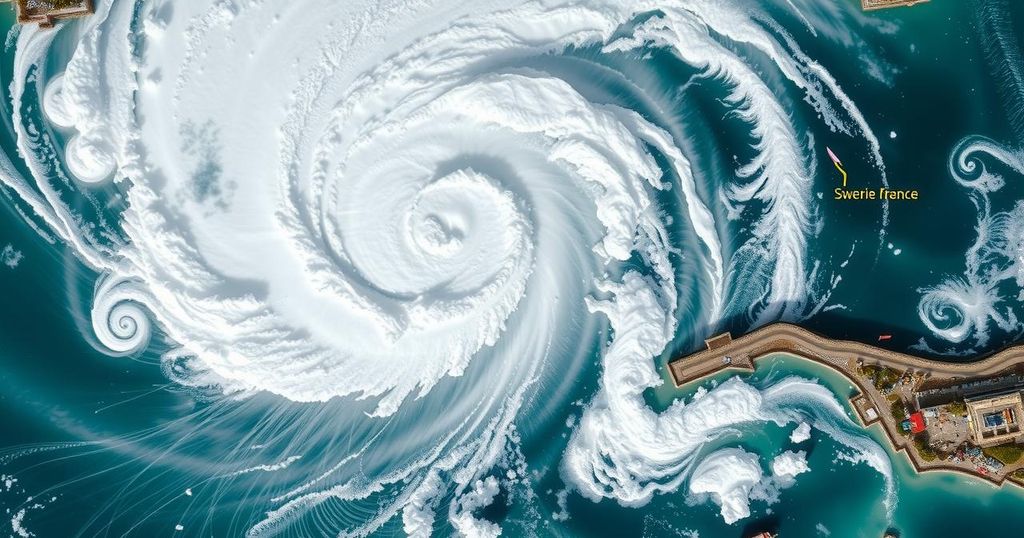Cyclone Chido Devastates Mayotte Before Approaching East Africa

Cyclone Chido has caused severe destruction in Mayotte, leading to numerous fatalities and damage to infrastructure. The storm is progressing towards mainland Africa, with authorities alerting for potential flooding in vulnerable regions like Mozambique. As rescue operations are underway, the cyclone highlights the broader threats posed by climate change and its impact on humanitarian crises in Southern Africa.
Cyclone Chido has wreaked havoc on the French territory of Mayotte in the Indian Ocean, resulting in several fatalities and extensive destruction, as authorities indicated on Saturday. The storm, which exhibited winds exceeding 220 kilometers per hour, has forced the island’s population of approximately 300,000 to contend with significant damage to infrastructure, including public facilities such as hospitals and airports. French Interior Minister Bruno Retailleau conveyed that the precise number of casualties remains to be determined as rescue operations unfold, given the challenges in accessing affected areas.
The impact of Chido has prompted emergency meetings among French officials, with President Emmanuel Macron closely monitoring developments. Mayotte, declared to be facing the most severe cyclone since 1934, is currently under a red alert status, urging residents to seek adequate shelter. The French government has mobilized police and rescue personnel to support the local population and maintain order as recovery efforts commence. Furthermore, the storm poses additional threats, impacting neighboring Comoros and potentially affecting millions in mainland Africa, particularly Mozambique.
Cyclone Chido’s trajectory is anticipated to continue toward the east coast of Africa, with officials warning of potential flooding and landslides. The cyclone season from December to March has seen Southern Africa endure recurrent severe storms, exacerbating humanitarian crises in already vulnerable regions. Past events underscore the connection between climate change and the increased intensity of cyclones, rendering the situation dire for the impacted countries.
The topic revolves around the impact of Cyclone Chido on the Indian Ocean territory of Mayotte and its approach toward the African mainland. The cyclone has resulted in tragic fatalities, with authorities grappling with the challenge of assessing the full extent of the damage amidst ongoing rescue operations. This occurrence provides insight into the seasonal cycle of severe weather events in the region, highlighting both the immediate humanitarian crisis and the long-term implications of climate change, as evidenced by recent cyclones that have severely affected Southern Africa.
In conclusion, Cyclone Chido has significantly damaged Mayotte and posed an imminent threat to mainland Africa as it continues its trajectory. The situation remains fluid, with rescue efforts ongoing and authorities preparing for severe flooding in affected regions. The cyclone’s ramifications accentuate the broader issues of climate change and disaster preparedness in vulnerable areas, underscoring the urgent need for comprehensive support and resilience-building measures. As communities brace for potential aftermaths, the focus remains on safeguarding lives and facilitating recovery.
Original Source: www.cnn.com








